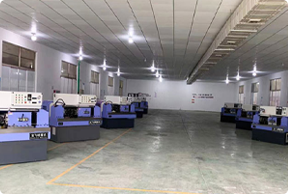
-
 Afrikaans
Afrikaans -
 Albanian
Albanian -
 Amharic
Amharic -
 Arabic
Arabic -
 Armenian
Armenian -
 Azerbaijani
Azerbaijani -
 Basque
Basque -
 Belarusian
Belarusian -
 Bengali
Bengali -
 Bosnian
Bosnian -
 Bulgarian
Bulgarian -
 Catalan
Catalan -
 Cebuano
Cebuano -
 Corsican
Corsican -
 Croatian
Croatian -
 Czech
Czech -
 Danish
Danish -
 Dutch
Dutch -
 English
English -
 Esperanto
Esperanto -
 Estonian
Estonian -
 Finnish
Finnish -
 French
French -
 Frisian
Frisian -
 Galician
Galician -
 Georgian
Georgian -
 German
German -
 Greek
Greek -
 Gujarati
Gujarati -
 Haitian Creole
Haitian Creole -
 hausa
hausa -
 hawaiian
hawaiian -
 Hebrew
Hebrew -
 Hindi
Hindi -
 Miao
Miao -
 Hungarian
Hungarian -
 Icelandic
Icelandic -
 igbo
igbo -
 Indonesian
Indonesian -
 irish
irish -
 Italian
Italian -
 Japanese
Japanese -
 Javanese
Javanese -
 Kannada
Kannada -
 kazakh
kazakh -
 Khmer
Khmer -
 Rwandese
Rwandese -
 Korean
Korean -
 Kurdish
Kurdish -
 Kyrgyz
Kyrgyz -
 Lao
Lao -
 Latin
Latin -
 Latvian
Latvian -
 Lithuanian
Lithuanian -
 Luxembourgish
Luxembourgish -
 Macedonian
Macedonian -
 Malgashi
Malgashi -
 Malay
Malay -
 Malayalam
Malayalam -
 Maltese
Maltese -
 Maori
Maori -
 Marathi
Marathi -
 Mongolian
Mongolian -
 Myanmar
Myanmar -
 Nepali
Nepali -
 Norwegian
Norwegian -
 Norwegian
Norwegian -
 Occitan
Occitan -
 Pashto
Pashto -
 Persian
Persian -
 Polish
Polish -
 Portuguese
Portuguese -
 Punjabi
Punjabi -
 Romanian
Romanian -
 Russian
Russian -
 Samoan
Samoan -
 Scottish Gaelic
Scottish Gaelic -
 Serbian
Serbian -
 Sesotho
Sesotho -
 Shona
Shona -
 Sindhi
Sindhi -
 Sinhala
Sinhala -
 Slovak
Slovak -
 Slovenian
Slovenian -
 Somali
Somali -
 Spanish
Spanish -
 Sundanese
Sundanese -
 Swahili
Swahili -
 Swedish
Swedish -
 Tagalog
Tagalog -
 Tajik
Tajik -
 Tamil
Tamil -
 Tatar
Tatar -
 Telugu
Telugu -
 Thai
Thai -
 Turkish
Turkish -
 Turkmen
Turkmen -
 Ukrainian
Ukrainian -
 Urdu
Urdu -
 Uighur
Uighur -
 Uzbek
Uzbek -
 Vietnamese
Vietnamese -
 Welsh
Welsh -
 Bantu
Bantu -
 Yiddish
Yiddish -
 Yoruba
Yoruba -
 Zulu
Zulu
screw rolling machine
The Innovations and Applications of Screw Rolling Machines
Screw rolling machines are pivotal in modern manufacturing, particularly in the production of fasteners and other cylindrical components. These machines utilize advanced engineering principles to create high-precision threaded products through a process known as rolling, which is both efficient and environmentally friendly.
The fundamental principle behind screw rolling machines lies in the deformation of materials. Unlike traditional cutting methods, which remove material to achieve the desired shape, screw rolling machines work by reshaping the material without removing any mass. This is achieved through the application of pressure and heat, allowing the material to flow and conform to the die’s shape. The result is a high-strength, precisely threaded screw or bolt that exhibits superior mechanical properties compared to those produced by other methods.
One of the significant advantages of screw rolling machines is their efficiency. The rolling process allows for high production rates, making it ideal for industries that require large volumes of fasteners. Additionally, the technique reduces waste as it minimizes the amount of scrap material generated during production. This not only improves the overall sustainability of the manufacturing process but also lowers material costs, benefiting manufacturers significantly.
screw rolling machine

Screw rolling machines are also renowned for their ability to produce components with excellent surface finishes. The rolling process imparts a smooth finish on the threads, which is crucial for applications where tight tolerances are paramount. This level of precision is especially important in sectors such as aerospace, automotive, and machinery, where the performance and reliability of fasteners are critical.
The versatility of screw rolling machines allows them to produce a wide range of products. From simple screws to complex shaped components, these machines can accommodate various materials, including steel, aluminum, and titanium. As technology advances, many screw rolling machines now come with CNC (Computer Numerical Control) capabilities, providing manufacturers with enhanced flexibility to create customized solutions tailored to specific market needs.
Furthermore, recent advancements in automation and robotics have enhanced the functionality of screw rolling machines. Automated systems can manage the loading, operation, and quality control processes, significantly improving productivity and reducing labor costs. With the integration of smart technology, manufacturers can monitor real-time data, ensuring optimal performance and reducing downtime.
In conclusion, screw rolling machines are an integral part of modern manufacturing, offering numerous benefits such as efficiency, precision, and adaptability. As industries continue to evolve, the demand for high-quality fasteners and components will only increase, pushing manufacturers to invest in these advanced technologies. The continued innovation in screw rolling machinery not only enhances production capabilities but also contributes to more sustainable manufacturing practices, setting the stage for a promising future in the industry.
